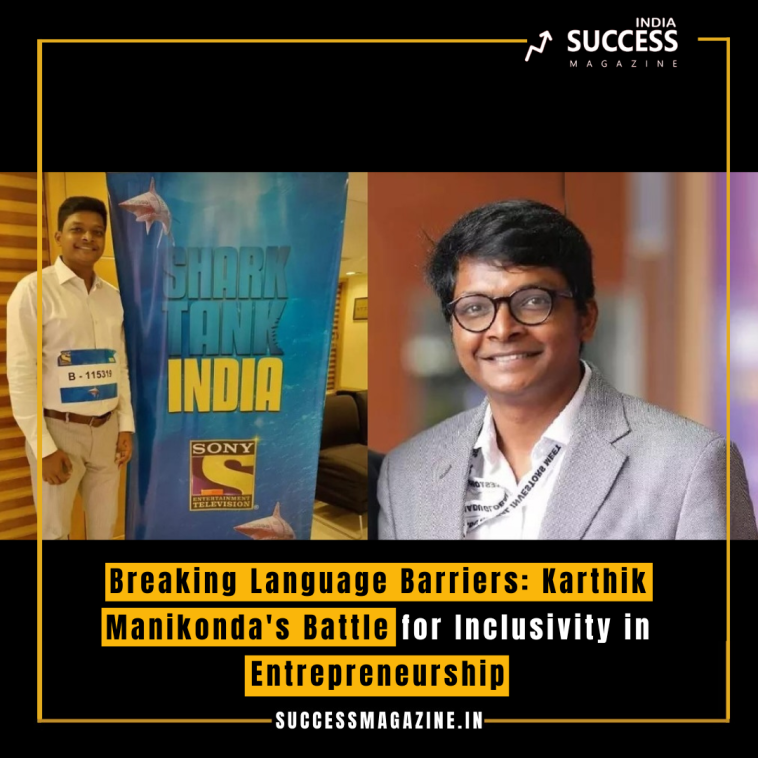In a recent revelation that has ignited conversations about inclusivity in entrepreneurship, Karthik Manikonda, an entrepreneur based in Chennai and the founder of The Mind and Company, opened up about his experience of being denied the opportunity to pitch on Shark Tank India due to his lack of fluency in Hindi. Despite being selected for the show, Karthik claims that the showmakers rejected his proposal to pitch in English, asserting that only participants fluent in Hindi are permitted to pitch on the show.
Karthik’s revelation sheds light on a significant issue faced by non-Hindi speaking entrepreneurs who aspire to showcase their ventures on national platforms. His candid LinkedIn post detailing his experience serves as a poignant reminder of the challenges encountered by individuals from diverse linguistic backgrounds within the entrepreneurial landscape.
Shark Tank India, a popular television show renowned for its potential to propel startups to success by providing funding and mentorship opportunities, has inadvertently highlighted a glaring gap in its inclusivity. By imposing language proficiency requirements that favor Hindi speakers, the show inadvertently excludes a significant portion of India’s diverse entrepreneurial talent pool, hindering innovation and growth opportunities.
For Karthik, the denial to pitch on Shark Tank India was more than just a setback; it underscored broader issues concerning representation and accessibility in entrepreneurship. By denying entrepreneurs the opportunity to pitch in languages other than Hindi, the show perpetuates exclusion and hampers diversity within the entrepreneurial ecosystem.
In his LinkedIn post, Karthik expressed his disappointment at being denied the chance to present his business idea to the Sharks. He emphasized that while he would have accepted rejection based on other valid reasons such as scalability or industry niche, the language barrier felt unjust and discriminatory.
Karthik’s experience serves as a wake-up call for stakeholders in the entrepreneurial community to address language barriers and promote inclusivity. By embracing linguistic diversity and accommodating entrepreneurs from various linguistic backgrounds, platforms like Shark Tank India can foster a more equitable and representative ecosystem that celebrates innovation irrespective of language barriers.
As discussions surrounding Karthik’s experience continue to unfold, it is imperative for stakeholders in the entrepreneurial ecosystem to reflect on the barriers faced by entrepreneurs from diverse linguistic backgrounds and work towards creating platforms that prioritize inclusivity and equality.
In conclusion, Karthik Manikonda’s battle for inclusivity in entrepreneurship highlights the urgent need to address language barriers within the entrepreneurial landscape. His story serves as a powerful reminder of the importance of diversity and representation in fostering innovation and growth. As Karthik’s voice resonates across the entrepreneurial community, it ignites a dialogue for change and inspires collective action towards building a more inclusive future for all entrepreneurs, regardless of linguistic background.


